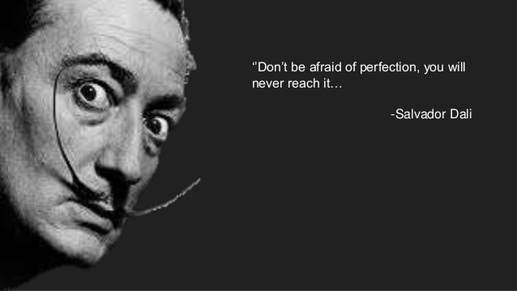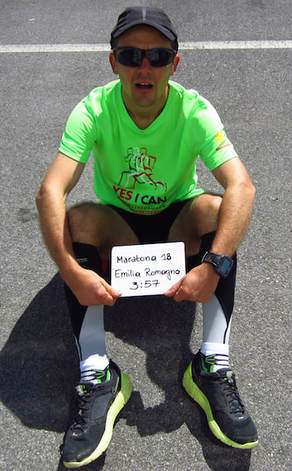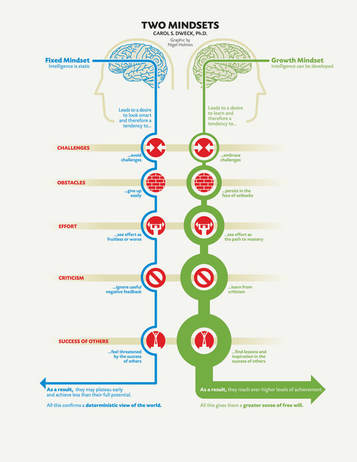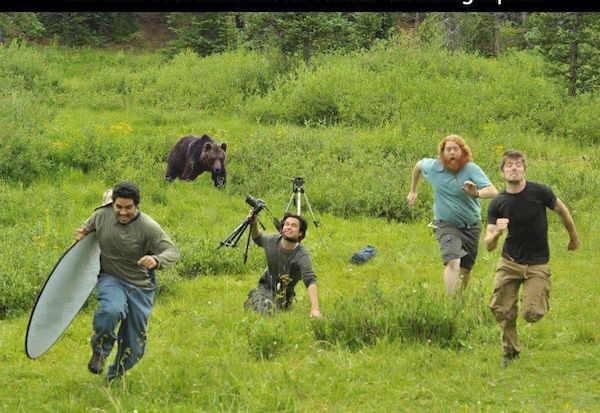|
11/7/2018 On Progression not perfection "Progression not perfection” - This is the running quote and everyday mantra of a dear friend of mine, and I couldn’t agree more. This is the recipe for kicking goals, seizing the moment and moving forward. The most successful individuals and companies have realised that "Perfection is the enemy of action”, so they choose constant progression instead. It doesn’t translate to being sloppy in what they do or lacking effort or attention. It means not hiding behind excuses and self-imposed “high regards" because ultimately: - we are never going to be perfect, we are human after all - we can always adjust things as we go and discover better ways of doing things - while those whose opinion we respect, won’t judge us for not being perfect - we will certainly regret not having tried because we were waiting for the perfect opportunity or for the fear of not being perfect In running this means taking the chance, turning up, doing the hard work in training, at home, with dignity, compassion and grit. The most successful runners I know, run almost every day, can race every other weekend. Sometimes they win and sometimes things blow up on their face.They are totally comfortable with failing, they don’t race only if things are perfect, if the sky is blue and the temperature is a perfect 15 degrees. I have a long way to go to fully embrace this attitude. I am obsessed by the details, in my training, in my races, in my work and in my life. And I can always find reasons why things are not good enough. I am sure I am not the only one. But I am slowly getting more comfortable in letting go of a utopian perfection and instead, focusing on progression.I must admit it feels good… almost like compound interest. You find yourself ahead without knowing why. This blog is an example. Sometimes I manage to say something of value, other times not so much. But I keep moving forward and that’s all that counts. 3/7/2018 On changing physiology Bonked Bonked For the last 5 years, once a week, I have been attending a core strength class for runners from my friends at The Body Mechanic. It is a key workout of my week and when I miss the class, I do the exercises at home. I know they help me physically. And they make me FEEL strong. The physical benefits of this routine are evident just by looking at my health insurance statement. In my first few years of running, I was troubled by constant injuries. Now I’m running longer and faster than ever before and I get away with general body maintenance & massage - touching wood. Another result of the physical improvement shows in my form. My race finishing photos were the last thing you would want to put up on a wall on display. They showed my lack of coordination, my knees were falling in, shoulders dropping, head tilted on a side, totally out of whack. I looked in pain, even when I wasn’t. I am still very far from having a composed style, but at least, I don’t ask the race directors to remove my photos from their site anymore! I am diverging from the topic… I came to realise that the second benefit of “feeling strong” is the main reason which has kept me so committed over the years. I associate the exercises, stretches and movements, to a feeling of building strength and having strength. Just by re-enacting these movements, I can almost instantaneously enter that mental state. In other words, by changing my physiology I trigger a change in my state of mind. This has translated in different habits and routines, I incorporate in my warm-up and at the start of a new day. I do a few push-ups in the shower, stretch my back, 30 seconds of lunges and groin stretch. Before a race, I do step ups and squat at the start line. While running, I often do few butt kicks, extend my arms above my head, do some chest rotations. When I stop at checkpoints I may do a "Richard Simmons" for a few seconds and maintain a squat. These movements last only few moments and don’t make any physical difference. But the mental uplift is real. And to me, it’s all that matters. There is an endless list of changes in physical states which I found create positive feelings. Feelings of energy, strength, readiness and self-belief. I now invoke these changes on purpose, when I need to prime myself for the day, for a hard training session, for a race or I need a pick-up.
The opposite is also true. More powerful and scary! Just try to go out one morning and run looking 50 centimetres ahead, hunched and with a sad face. It will ruin your run and probably your day! Maybe, like most, this is exactly how you run when you bonk. No amount of caffeine and pep-talks will get you out of that near-death feeling, if not coupled and supported with a change of physical state. My point being that it is a self perpetuating circle. By changing our physical state, we influence our mind state. Which in turn will affect our physical state. The body-mind connection is undeniably real and we are in control of most settings. When all the dials are tuned to the best, we have a perfect run. How do you put yourself in the best possibly physical state? 26/6/2018 On growth mindset A lightbulb went off when a few years ago I read the book “Mindset: The new psychology of Success” by Stanford Psychologist Carol S. Dweck. This was one of the first audiobooks I listened to while on the run, and I remember thinking to myself “This makes so much sense… I got it all wrong! But I still have so much time to change!" The book discusses the difference between a "fixed mindset" and a "growth mindset”. The fixed mindset is the belief we are born with talents and qualities which are fixed and immutable. On the opposite, the growth mindset is the belief that, through practice, effort and shift in perspective, we can grow to our true unknown potential. Don’t be fooled by reading my oversimplification and interpretation of the growth mindset. While the concept may seem simple and obvious, the implications are enormous. Dr Dweck and her team spent years researching, studying and testing the growth mindset and system. They applied it to young students in different schools, with amazing results. The book has particular relevance to coaches, leaders, teachers and parents, but I feel it has a place in this blog as it can be applied to running. It can be interpreted in the context of training and racing, and constant improvement of our skills. My three major insights from the book were: Qualities are like muscles, we can strengthen them. It seems plausible to me that, Usain Bolt and Kouros Yiannis, possess some special genetic combinations which give them innate advantage over the rest of us. But I am sure that when they were kids or starting out, these supreme qualities were not that obvious but they cemented through a lifetime of dedication and training. There are plenty of example of people transforming from overweight and badly out of shape smokers, to elite athletes. We have not been served with a hand of cards when we were born and that’s it. Our qualities are not fixed, they can grow and can always be strengthened like a muscle. Our potential is unknown until we tap into it. If we allowed ourselves to try. And it all starts from believing we can improve. To paraphrase Tony Robbins, “we overestimate what we can achieve in a year, but we underestimate what we can achieve in three to five years”. Focus on effort over achievement or outcome. As a result of the previous point, a “growth mindset” is focused on the effort we put in what we do. If qualities and talents are not fixed at birth, we can stop trying to validate them through achievements only, but instead, we can cultivate them (through effort). This is extremely powerful as when we focus only on achievement, we tend to remain stuck to what we know and what we are good at. When we focus on effort, we open up to the opportunity of taking risks, accepting failures and grow. We can take on challenges, races, training sessions and define our success based on the effort we put in (I gave it all I have, I worked hard for months, etc.), rather than just the outcome (I won the race, I got the time I was after, etc..). I find this liberating. If throughout my training and a race I give my truly whole self, I can be satisfied. And I can always put 100% effort into what I do. The conversation we have with ourselves and others is important To quote Dr Dweck from her Ted Talk: “I heard about a high school in Chicago where students had to pass a certain number of courses to graduate, and if they didn't pass a course, they got the grade “Not Yet.” And I thought that was fantastic, because if you get a failing grade, you think, I'm nothing, I'm nowhere. But if you get the grade “Not Yet” you understand that you're on a learning curve. It gives you a path into the future." "I am not that fast, yet”. “I have not reached my PB, yet”. When we truly mean the yet at the end of the sentence, it changes its meaning and impact. It leaves space for growth and moving forward. We all have certain aspects in our lives for which we naturally have a fixed-mindset and others for which we have a growth mindset. I know I sound like a broken record but changing mindset requires practice and faith in ourselves. The book is really powerful and contains several methods on how to practice growth-mindset. I would encourage you to read or listen to this book. In fact, I have it back on my Audible list, ready for my next long run! 20/6/2018 On Self Talk “You have another 5 hours to go, at least. It’s freezing and this is the hardest section of the run, good luck with that! You should have tried the head torch, you can’t see a thing, you are going to kick a rock and bust your toenail, again. Your legs are shuttered; this is going to be a long walk of shame. What were you thinking going out so hard??" “Last 30 km. Maybe 5 hours?! Then a large pizza! You made it here in exceptional time; now it's cold, you are tired and with the dimmed light from your head torch on this technical trail, you may be better off power walking for a bit. Maybe start running when the course flattens to sprint finish!" Both statements are equally true but what a difference! If you were my support crew I hope you would use the more encouraging one, or you won’t get moving. The thing is that we often forget we are our own support crew. All the time. The words we use in our own self-talk have an enormous impact on our training and racing. The way I see it, the little chatterbox in our heads interprets the external stimuli, processes the feedback from our body, taps into our core values, beliefs and fears, adds some drama and doubts and shakes things up! The final cocktail is a stream of self-talk, a story we tell ourselves, which ends up influencing the reality we experience and our decisions. It is a story. Although we are the narrators, we should take it with a pinch of salt! Even better, because we have an active part in telling ourselves that story, we should remember a very powerful principle: Before you speak, you should ask yourself: Is it kind, is it necessary, is it true, does it improve upon the silence? [by Socrates (Greek philosopher) first and extended by Sai Baba (Indian guru)]
While we expect others (or should expect) to talk to us accordingly to the above principle, sometimes we have double standards about our self-talk. And given we talk to ourselves all the time, day in and day out, during training and during races, we should pay attention to how we talk and what we say to ourselves. Imagine if we could rely on our self-talk as our main allay, our internal cheer squad and motivator during races. What a performance booster! The self-talk would reinforce our belief we have the ability to overcome the challenge in front of us. Our mental energy would be invested in constructive and positive thoughts, keeping us grounded, relaxed and on the task. I don’t think anyone is immune to negative self-talk. I think it is about recognising it for what it truly is: just a thought, a story we tell ourselves. A common trait I see with successful and positive people is that they have a different dialogue with themselves and others. And they naturally bring that in their own self-talk, because ultimately we are what we practice. In my opinion, it has less to do with “reframing” a situation but more of a genuine “growing mindset”. In their character, actions, and conversations I see that:
This is not a complete list of course. I just wanted to point out the obvious we all forget: Tackling negative self-talk begins way before the self-talk starts! A quick fix in isolation, whether its a mantra, a reframing, a long exhale, or loud shouting as I always do when I get overwhelmed, don't help if the base conversation we have with ourselves is not honest, kind, necessary, true and improves upon the silence. 12/6/2018 On raising the stakes Do you really want to run <insert your goal time here> in your next <insert event/distance here> ? Or a better question would be, what is at stake if you don’t? Because there will be a few occasions during training and race where we need to make decisions which will impact our result. There will be days we need to head out to complete the planned training session in the pouring rain and howling winds. Times when we will have to excuse ourselves from late nights out to get up early to train. Times when we will have to say no to those social runs and fun races we would otherwise enter (and admittedly this is probably the hardest thing). Times when during the race we will have to endure the suffering a little longer. We can talk ourselves out of something we want… because we don’t REALLY want it that much after all. But when there are higher stakes, we remove the choice of having a choice. No regrets or sense of missing out from life during training, no self-pity during race. We gain sense of direction and purpose. We feel empowered, in charge of our destiny, that with every step, we open up the path to achieving our goals. And when in the hurt locker, we can be confident we have done the work with total dedication, and that our effort counts. We often find the extra gear. The extra strength needed to keep pushing and enduring. Generally speaking, we all perform at our best when there is something bigger at stake. It can be something personal like pride and self-confidence, to charity causes, to career defining performances. Anything we attribute great value to, has the power to motivate us, keep us on the right path and affect positively our performance. I often think at extreme stakes, life/death situations or family members in trouble, and how that would make me perform and step up my game. Say I’m chased by a bear, that would certainly make me break my 5km, 10km and marathon PBs. I would just do it. Thankfully, this doesn’t happen here in Australia, maybe we could be chased by a kangaroo or Emu which I’m sure would be equally exciting. My point being that everything else being equal, the higher stakes will get us to perform better, by a large margin, and we can try to tap into that . I don’t think that all the races we do, should have high stakes; it’s neither fun, nor healthy nor sustainable. It is a fine line. But I think if we pick a running goal which feels important and we are truly committed to achieve it, raising the stakes will help us keeping accountable. And it can be as easy as taking the time to write down why a certain race/time is important, telling a friend, or just share it in a public FB post to the world if that’s your thing! It’s time to step up the game! |
|
KEEN FOR A RUN AND A CHAT? |
PO BOX 110 Tewantin QLD 4565 AUSTRALIA - [email protected]
 RSS Feed
RSS Feed